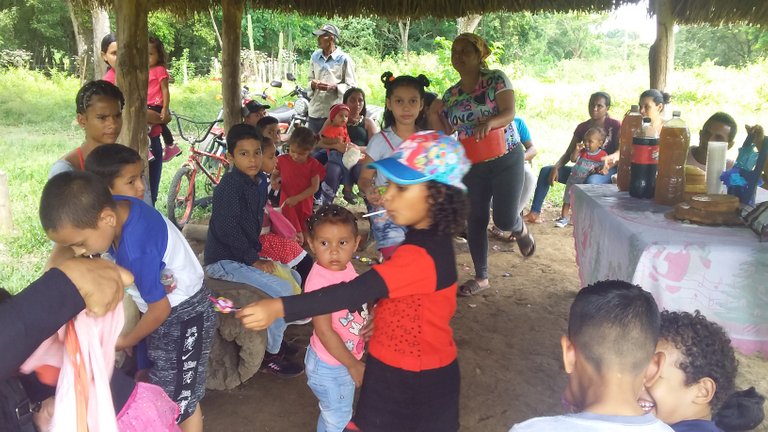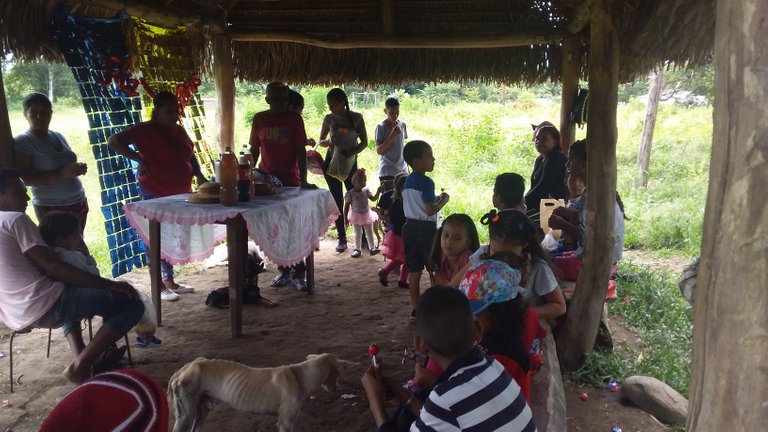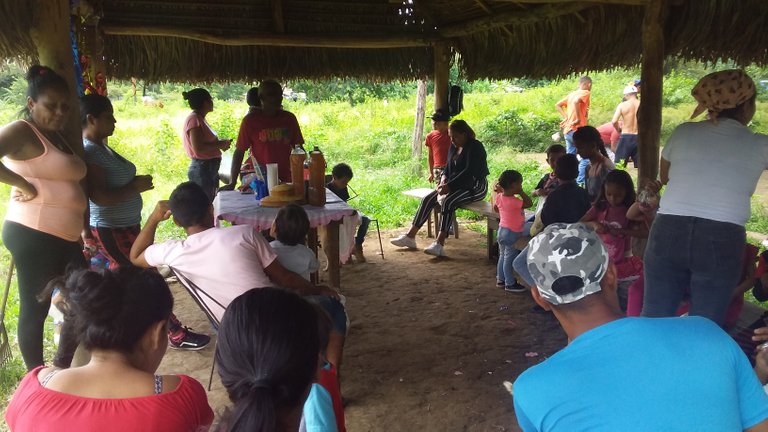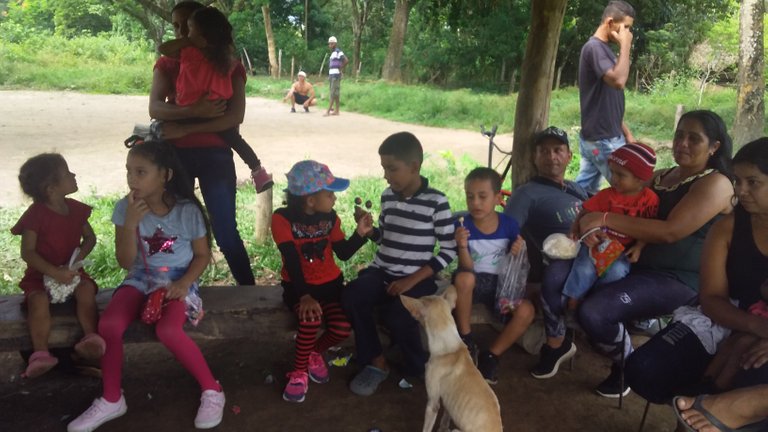Cuidemos nuestros niños / Let's take care of our children

A mí que no me vengan con cuentos chimbos de que a los niños hay que tratarlos como a adultos, no, a ellos hay que atenderlos como lo que son, como niños; seres indefensos, fácilmente manipulables, vulnerables física, emocional y mentalmente. No acepto que me digan que ellos están en capacidad de decidir cualquier cambio de identidad o sexo; no asimilaré semejante absurdidad porque creo que eso tiene, políticamente, otras intenciones.
Lo del niño es el juego y hasta qué punto con la representación de roles, mientras juega, aprende lo que será de adulto, se lo dejo a la sociología y a los estudiosos de Émile Durkheim y le dejo también su parte a la psicología. Prefiero quedarme con Platón y un poco más acá, con Simón Rodríguez.
Don't tell me that children should be treated as adults. No, they should be treated as what they are, as children; defenseless beings, easily manipulated, physically, emotionally and mentally vulnerable. I do not accept being told that they have the capacity to decide any change of identity or sex; I will not assimilate such nonsense because I believe that this has, politically, other intentions.
I leave it to sociology and the scholars of Émile Durkheim and psychology to determine to what extent the child learns what he or she will be as an adult through role-playing while playing. I prefer to stay with Plato and, a little later, with Simon Rodriguez.

Decía Platón en su libro La República, que si queríamos educar a los niños no empleáramos la fuerza, que usáramos el juego y así podríamos saber de qué está hecho cada uno. Asumo que el filósofo asumía que los pequeños no estaban para otra cosa, sino para el juego; y asumo que lo asumía porque Platón, que no era cualquier plato sino el mejor, porque fundó la primera academia donde formó a tantísimos hombres que más tarde fueron notables sabios y pensadores, pues este hombre de omóplatos grandes que le valió su apodo de Platón vio, observó, contempló, detalló y entendió, la naturaleza sencilla, espontánea y amena del niño.
Plato said in his book The Republic, that if we wanted to educate children, we should not use force, we should use play and then we could know what each one is made of. I assume that the philosopher assumed that the little ones were not for anything else but for play; and I assume that he assumed it because Plato, who was not just any plate but the best, because he founded the first academy where he trained so many men who later became notable sages and thinkers, because this man with large shoulder blades that earned him his nickname Plato saw, observed, contemplated, detailed and understood, the simple, spontaneous and pleasant nature of the child.

El otro, Simón Rodríguez, a quien Simón Bolívar llamó el Sócrates de Caracas, pensaba que hasta los 10 años el niño debería estar en su casa, jugando. Que después de esa edad es que deberían ir a la escuela y que, en 10 años, él los convertiría en republicanos, es decir, en personas útiles a la sociedad.
Tampoco Simón Rodríguez era plato de segunda mesa: filósofo, políglota, único venezolano, según él, que viajó a Europa no a hacer riqueza material, sino intelectual. Su pensamiento había dado algunos frutos a los niños durante la época colonial, pero también algunos dolores de cabeza al gobierno y por eso se exilió y fue allá, en Europa donde exploró, estudió, vivenció y asimiló el conocimiento de los antiguos sabios que más tarde quiso sembrar en América.
The other, Simón Rodríguez, whom Simón Bolívar called the Socrates of Caracas, thought that until the age of 10, children should be at home, playing. That after that age they should go to school and that, in 10 years, he would turn them into republicans, that is to say, into people useful to society.
Simón Rodríguez was not a second-table dish either: philosopher, polyglot, the only Venezuelan, according to him, who traveled to Europe not to make material wealth, but intellectual wealth. His thought had given some fruits to the children during the colonial period, but also some headaches to the government and that is why he went into exile and it was there, in Europe, where he explored, studied, experienced and assimilated the knowledge of the ancient sages that he later wanted to sow in America.

Sin ir muy lejos, cualquiera que tenga un hijo, un sobrino o esté cerca de un pequeño y quiera comprobar lo que afirmó Platón, no tiene más que dedicarse a observar y lo entenderá, porque no hace falta ser filósofo para darnos cuenta de que el niño lo que quiere es jugar; que quieren ser Batman o el superhéroe favorito, que a un palo lo convierten en un arma, una caja en un carrito o cualquier objeto lo transforman en un juguete.
But without going any further, whoever has a child, a nephew or is close to a child and wants to verify what Plato said, just observe and you will understand, because you don't need to be a philosopher to realize that children want to play, they want to be Batman or their favorite superhero; they make a stick become a weapon, a box into a cart or any object into a toy.

Dichos argumentos los tomo como base de mi reflexión e insisto en que debemos cuidar a los niños de cualquier pensamiento, acción o intento de sacarlos de su naturaleza mágica, tierna y juguetona; que el mundo ya no sea mágico para nosotros no significa que no lo sea para ellos, no significa que tengan que dejar de creer en piratas, duendes, princesas o alfombras voladores; no es culpa de ellos que seamos aburridos, indeseables o monstruos reales. Nosotros matamos a nuestro niño interno, pero no por eso podemos permitir que una cuerda de cangrejos, que son menos que los buenos, quieran robarles la infancia a los niños, quieren quitarle la ilusión, la esperanza y los momentos más divertidos en todo el proceso de crecimiento del ser humano.
I take these arguments as the basis of my reflection and insist that we must take care of children from any thought, action or attempt to take them out of their magical, tender and playful nature; that the world is no longer magical for us does not mean it is not for them, it does not mean they have to stop believing in pirates, elves, princesses or flying carpets; it is not their fault that we are boring, undesirable or real monsters. We kill our inner child, but that doesn't mean we can't allow a string of crabs, who are less than good, to steal children's childhood, they want to take away the illusion, the hope and the funniest moments in the whole process of human growth.


Las fotografías que acompañan el texto son todas mías; son los niños de mi comunidad Quebrada Seca, un campo a dos horas de Guanare. Son mis sobrinos, primos y parientes con quienes celebramos el Día del Niño en familia.
The photographs accompanying the text are all mine; they are the children of my community Quebrada Seca, a countryside two hours from Guanare. They are my nephews, cousins and relatives with whom we celebrated Children's Day as a family.
@tipu curate 8
Upvoted 👌 (Mana: 0/72) Liquid rewards.
Fascinantes lineas y ¡absolutamente de acuerdo con todo cuanto escribes!... ¡Y un aplauso por hablar de Platón y de Simón Rodriguez en un mismo artículo!...Un placer leer esto estimado tocayo @jesuspsoto.
!discovery 30
!VSC
!PIZZA
@jlinaresp has sent VSC to @jesuspsoto
This post was rewarded with 0.1 VSC to support your work.
Join our photography communityVisual Shots
Check here to view or trade VSC Tokens
Be part of our Curation Trail
@jlinaresp ha enviado VSC a @jesuspsoto
Éste post fue recompensado con 0.1 VSC para apoyar tu trabajo.
Únete a nuestra comunidad de fotografía Visual Shots
Consulte aquí para ver o intercambiar VSC Tokens
Se parte de nuestro Trail de Curación
Tocayo hay que estar atento con nuestros niños y alzar la voz para que los que quieren engañar a los niños sepan que hay quienes los defienden. Gracias por el apoyo.
This post was shared and voted inside the discord by the curators team of discovery-it
Join our Community and follow our Curation Trail
Discovery-it is also a Witness, vote for us here
Delegate to us for passive income. Check our 80% fee-back Program
$PIZZA slices delivered:
@jlinaresp(8/10) tipped @jesuspsoto